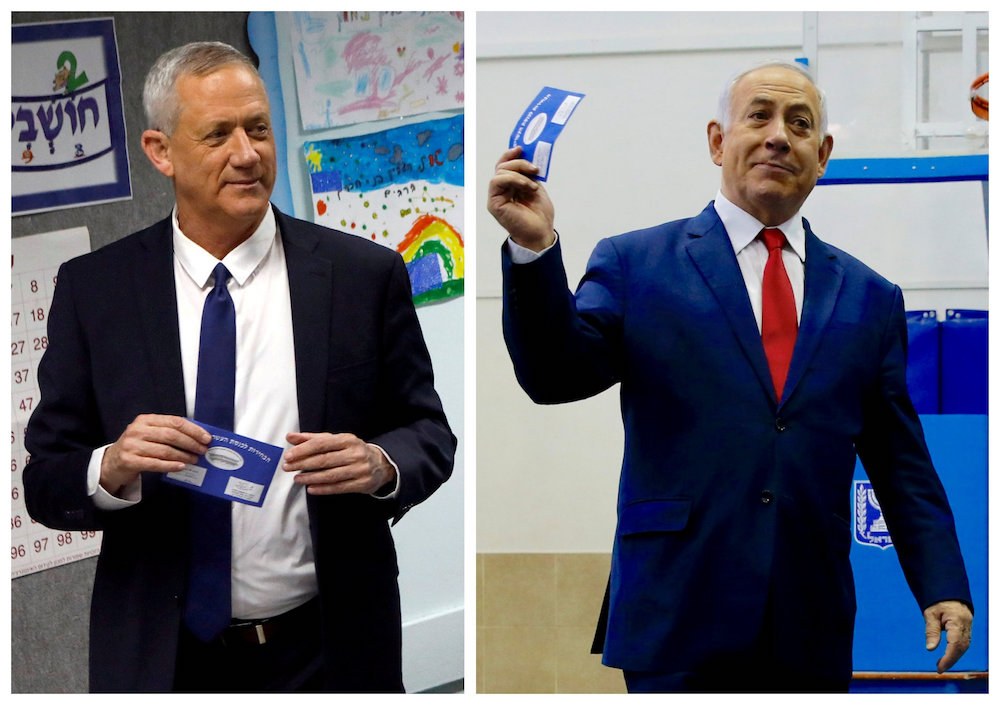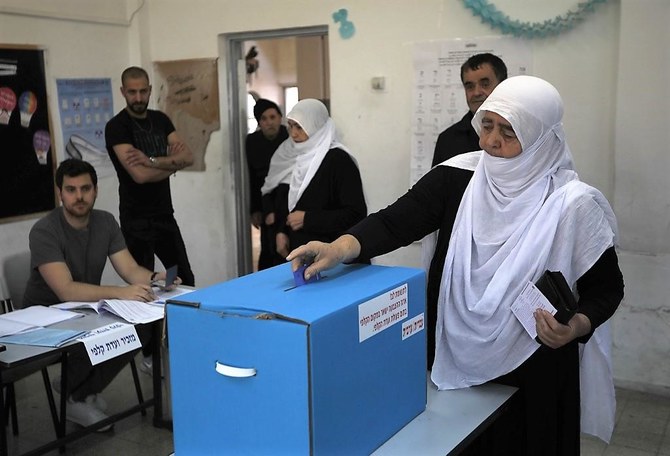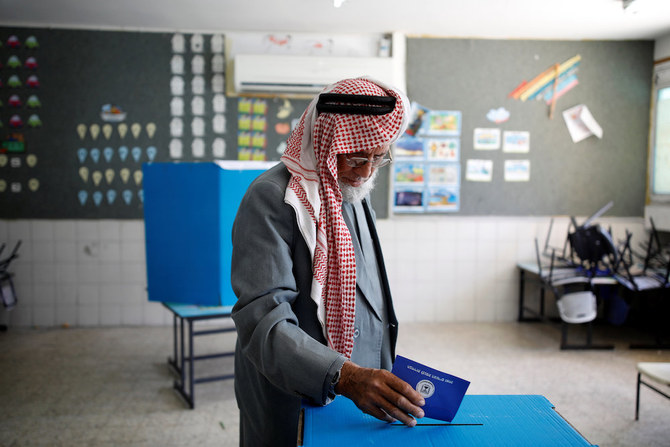JERUSALEM: Israelis began voting in an election on Tuesday that could hand conservative Prime Minister Benjamin Netanyahu a record fifth term or see him dethroned by an ex-general who has pledged clean government and social cohesion.
Polling stations opened at 7am across the country and close at 10pm.
But following an Arab party's complaints that it observed Netanyahu's Likud party deploying staffers who attempted to secretly surveil predominantly-Arab polling stations, Israel's elections committee has banned hidden cameras at polling stations.
Israeli media reported on Tuesday that Likud dispatched 1,200 observers in Arab polls. The Israeli daily Haaretz published videos showing activists caught with cameras by police, with one confessing Likud had sent him.
Police said they were working to "maintain public order" after "a number of suspected irregularities" in northern polls.
Arab parties lambasted the cameras as a ploy to depress their constituents' turnout.

The Likud party declined to comment, but when a reporter asked Netanyahu about the claims as he cast his ballot, he responded: "There should be cameras everywhere. Not hidden. It's important to ensure a legitimate vote."
But the victor may not be decided immediately on Tuesday evening. No party has ever won an outright majority in the 120-seat parliament, meaning days or even weeks of coalition negotiations will lie ahead.
Dubbed “King Bibi,” Netanyahu has rallied a rightist camp hardened against the Palestinians and played up Israeli foreign policy boons that are the fruit of his ties with the Trump administration.
But the 69-year-old Likud party leader’s hope of overtaking Israel’s founding father, David Ben-Gurion, as longest-serving premier in July has been dented by a looming graft indictment. He denies any wrongdoing.
Critics warn of “Bibi fatigue” and argue that the parliamentary election should bring fresh faces to high office.
Stalking Netanyahu in the opinion polls has been Benny Gantz, a former chief of the armed forces and centrist political novice. Buttressed by two other former generals at the top of his Blue and White party, Gantz, 59, has sought to push back against Netanyahu’s self-styled image as unrivalled in national security.
After the election Israel’s president, Reuven Rivlin, will consult the leaders of every party represented in the Knesset and select the person he believes has the best chance of forming a government. Voting at a polling station in Rosh Ha’ayin near Tel Aviv, gynecologist Yaron Zalel, 64, said he supported Netanyahu’s chief opponent, the centrist former general Benny Gantz.

A combination picture shows Benny Gantz (left), leader of Blue and White party voting at a polling station in Rosh Ha'ayin and Israel's Prime Minister Benjamin Netanyahu voting at a polling station in Jerusalem during Israel's parliamentary election. (Reuters)
“I’m feeling excited because I think we are going into a new era, and we are going to change the government today,” he added. “Netanyahu did a lot of great things for Israel, really, a lot of great things. But he is 13 years in power and enough is enough,” he said.
“He has had enough, he did enough. Now when he feels his earth, the political earth, is shaking, he is destroying everything. This has to be stopped. I am here for my kids and the next generations. There is no one who can’t be replaced.”
Backing Netanyahu was another voter at the same polling station, Avi Gur, 65, a lecturer at Ariel University in a settlement in the Israeli-occupied West Bank.
“Very excited, very excited. I hope that rightism will win,” he said, adding that the Likud leader was “the best prime minister there has ever been” in Israel.
“We are leading in high tech, we are leading in security, we are leading in the economy now. That’s good.”
In Jerusalem, Ronza Barakat, a librarian belonging to Israel’s Arab minority, said she backed the left-wing Meretz party.
“I voted for them hoping for change, a change in the racism that exists here,” she said. “We live together in a place of peace, why should hate exist between people?”
With little policy daylight between the two main candidates on issues such as Iran and relations with the Palestinians, much of the voting will be guided by judgments on character and personality.
In vitriolic campaigns waged largely over social media rather than in town squares or street corners, they have traded escalating accusations of corruption, of fostering bigotry and even of conspiring with Israel’s adversaries.

Netanyahu casts himself as the victim of media bias and judicial overreach. “This is a choice between a strong right-wing government under Netanyahu or a weak leftist government under Gantz,” his Likud party said in a pre-election statement.
Gantz casts himself as a salve for Israel’s religiously and ethnically riven society and its ties with liberal Jews abroad. “Netanyahu is not the messiah, nor an irreplaceable legend,” Gantz told Reuters in the run-up to the election. “The people of Israel long for something else.”
But the distinctions between the leading parties in Israel were not as vivid as they had been in past decades, said Nabil Shaath, a veteran adviser to Palestinian Authority President Mahmoud Abbas.
“There were times when elections were important, because there was really more than one camp in Israel, there was a left and there was a right,” he said on Monday.
“But now, what are you talking about? It’s the right, and then further to the right and then the extreme right and then further to the extreme right, there is really no left, left is Israel.”
Both Netanyahu and Gantz have publicly ruled out a future alliance in a “national unity” coalition, but some analysts predict a rethink, especially if the candidates agree to tackle together a widely expected US plan for Middle East peace.

















